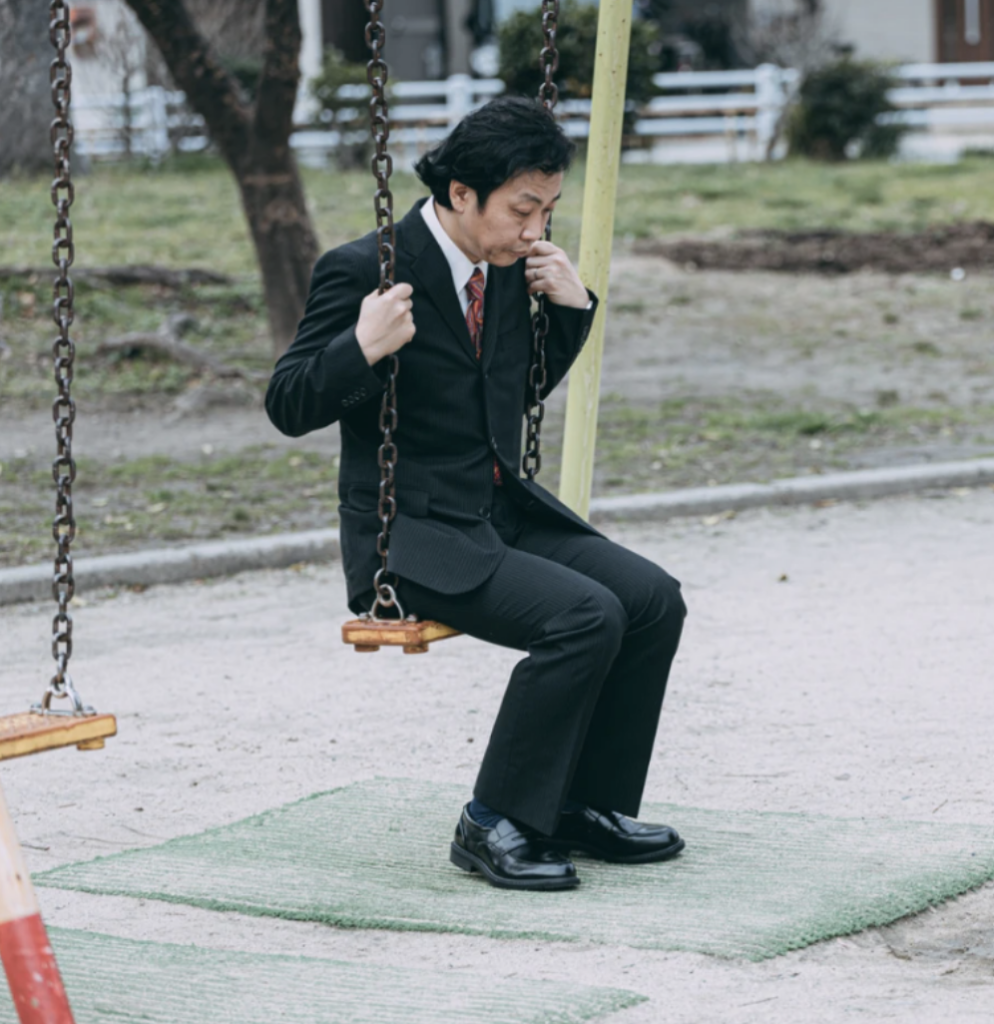Time-bomb Japanese Economy When we look at Japan from the outside, the common belief is that its main problem is the declining birth rate. However, I’m here to tell you that this repeated narrative is a lie. The real issue lies elsewhere.

Inefficiency in Japanese corporations:
Many foreigners have the perception that Japanese people work excessively, even to the point of death. However, the reality hits you when you start working in these companies.
Firstly, there’s the nonsensical number of meetings without any resolutions. The inability to be sincere and speak the truth directly makes these meetings painfully long. In my experience in other countries, the faster you address a problem directly, the sooner you can resolve it.
However, due to the strict hierarchical structure, you can’t deliver bad news easily. To be considered a “good employee,” you need to pass the responsibility for hours on end until your boss has the courage to confront the problems.
Another issue is the presence of ghost workers. As mentioned in this article, around 50% of companies have elderly employees who don’t contribute to the work.

Moreover, it’s common to come across lazy workers who spend hours flipping through pages, pretending to be busy, or aimlessly running around. It’s easy to spot these absurd actions, which I call “goofy ghosts.” They waste as much time as possible in the most senseless ways. Ironically, these same individuals start working at the end of their shifts just to accumulate overtime and prove their dedication to their bosses.
However, since promotions in most companies are based on appearances rather than actual hard work, these goofy ghosts end up climbing the corporate ladder faster than competent individuals.

What Japanese bosses fail to realize is that such practices only slow down and make the work environment less efficient. In this study from early 2000’s already point how inefficient is the Japanese company model and how other countries observe Japanese good ideas and send to other countries, implemented in more efficient way and ended having way better success than japan because Japanese companies denied to change and evolve.
Allow me to provide an example from my personal experience:
Last year, I worked with teachers in their 60s and 70s, and for every decision, they insisted on having lengthy meetings, often lasting 2 to 4 hours per week.
Fortunately, this year, I had the opportunity to work with teachers in their 30s and 40s.
Instead of enduring long and painful meetings, we resolved our issues through 15 to 20 minutes of informal chats.
This simple change made us more than 10 times more efficient by cutting out outdated and time-consuming practices.
This trend of reducing meetings and increasing productivity can be observed in other countries as well, as shown in this article about Shopify, which eliminated over 70,000 hours of meetings. However, Japan struggles to accept such innovative ideas due to its resistance to change.
Gender gap:
As most people are aware, Japan remains a highly sexist country, ranking 120th in the gender gap index. This is an incredibly shameful position to hold.
Not only do women earn significantly less than men, with around 75% of a full-time male employee’s salary, but they also hold only 15% of positions of power.
This gender disparity terrifies women, leading to the following statistic: almost 80% of foreigners married to Japanese citizens are foreign men. For many, marrying a foreigner becomes a means to find freedom.

During conversations I’ve had with Japanese people abroad over the past decade, the common argument for leaving Japan is, “I want to be free and have equal rights.” .
I never understood until I start to live and work in Japan, and now I can say I feel in the same way.
This sentiment has become more and more apparent in recent years.
Many families I know, particularly those with daughters, have left Japan within the last five years, more intensively for the last six months.
When asked why, their unanimous answer is, “Japan doesn’t offer a future for my daughter.”
They are right.
Any individual aspiring to build a life and thrive will ultimately leave Japan due to the lack of future prospects and equality.
Economic policies and the imminent 20-year bomb:
In 20 years, Japan will reach a critical point where over 50% of the population will be retired. This scenario will be far worse than the previous “lost decade” crisis.
During the lost decade, when Japan faced a severe economic collapse, the majority of the population was between 30 and 40 years old. This meant there was a working-age population that could help the country recover.
However, due to the declining birth rate caused by gender inequalities, a lack of educational improvements, outdated management practices, and unfriendly immigration policies, we will face the reality of retirement and inflation much sooner than in 20 years.

Let me explain why:
Typically, retirement savings are expected to sustain individuals for the next 5 to 8 years of their lives. However, the reality is different now. 78.1% of retirees at the age of 65 live past the age their savings were intended for.
At this point, the government cannot simply ask the elderly to return to work. Instead, they start using the contributions of the working population to pay for these retirees. If the ratio were one-to-one, where one worker contributes for one retiree, the system could be sustainable for a significant period. However, the truth is that for every retiree who reaches their 70s, at least five working individuals are required to contribute to their retirement funds. This means you need five times more people in the workforce than people over 70 years old.

In 20 years, we will have over 50% of the population above 65 years old, while less than 38% will be part of the working force. This creates a situation where the government can no longer afford to pay retirees.
And the worst part is when these individuals turn 65 and realize there’s no money left because the government used their contributions to pay other retirees.
Governments will have to resort to one of two solutions: either printing more money, leading to inflation or possibly hyperinflation, or raising the retirement age to 80, which will push the population further into poverty, forcing them to accept any kind of job to survive.
There is a solution, but it requires a difficult change:

The only solution to avoid reaching a breaking point is to attract skilled individuals.
Countries like Canada and Australia have already implemented permanent visas for skilled workers, also is english speaking countries attracting more people because of lower entry language barrier compared to Japan
However, both countries still struggle to attract the majority of skilled workers because, despite their expertise, these individuals often have to start at entry-level positions for many years and spending thousand of dollars redoing unnecessary courses.
Millennials and Gen Z are not willing to remain in a company or a place where they don’t have equal rights.
They will simply move to another country that offers a better environment.
This easy mobility makes even more urgent changes in politics.
The reality is that to attract people, Japan needs to provide an environment where individuals can stay and grow.
This is something Japan must work hard on.
Without women’s rights, with prevalent sexism in society, and with cases of kidnapping and sexual violence still being tolerated, no woman in her right mind would want to have a baby in this country.
Moreover, biracial individuals, known as “Halfus” (half Japanese and half foreigner), constantly face marginalization.
Also mental health still a taboo and this increase the problem with high levels of suicide.
Racism also acts as a significant barrier to entry. As a Spanish friend of mine with a master’s degree in Japanese linguistics once said, “I will never live in Japan because we are not treated as humans here.”
Even if you master the language, understand Japanese culture, and strive to be a part of society, you will never be considered truly Japanese.
This feeling crosses our minds every day: why bother learning such a difficult language and culture if we’ll never have the chance to succeed and be accepted?
While many of us foreigners love Japan, there comes a point when we realize that in order to grow, we must leave.
And if more people leave, who will be the last one to turn off the lights?



